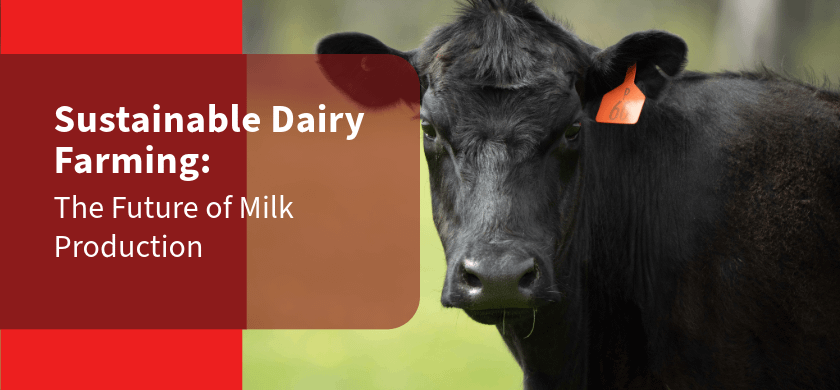Dairy farming has long been an essential part of the agricultural industry, providing milk and dairy products to millions of people around the world. However, traditional dairy farming practices can have a significant impact on the environment and contribute to climate change. As a result, there is a growing interest in sustainable dairy farming practices, which aim to minimize the environmental impact of milk production while also ensuring the health and well-being of the cows.
In this article, we will discuss the importance of sustainable dairy farming and some of the key practices that can help farmers achieve this goal.
Why Sustainable Dairy Farming Matters
Sustainable dairy farming is critical for several reasons, including:
- Reducing Greenhouse Gas Emissions – According to the United Nations Food and Agriculture Organization (FAO), the global livestock sector is responsible for nearly 15% of all human-induced greenhouse gas emissions. Sustainable dairy farming practices can help reduce these emissions by improving the efficiency of milk production and minimizing the carbon footprint of dairy farming.
- Promoting Animal Welfare – Cows are the cornerstone of the dairy industry, and their health and well-being are critical for sustainable milk production. Sustainable dairy farming practices focus on ensuring that cows are kept in comfortable and healthy environments, with access to clean water, nutritious feed, and adequate space to move around.
- Supporting Rural Communities – Dairy farming is often a vital source of income for rural communities, and sustainable dairy farming practices can help support these communities by promoting economic growth and creating employment opportunities.
Sustainable Dairy Farming Practices
Sustainable dairy farming involves a range of practices that focus on improving the efficiency of milk production, reducing the environmental impact of dairy farming, and promoting animal welfare. Some of the key practices include:
- Feed Management – Ensuring that cows are fed a balanced and nutritious diet is critical for their health, well-being, and milk production. Sustainable dairy farmers work with nutritionists to develop diets that are tailored to the specific needs of their cows, with an emphasis on using locally sourced and sustainably produced feed.
- Manure Management – Manure is a valuable source of fertilizer, but if not managed properly, it can also be a significant source of water pollution and greenhouse gas emissions. Sustainable dairy farmers use manure management practices that focus on minimizing the environmental impact of manure while also maximizing its value as a fertilizer.
- Energy Efficiency – Dairy farming can be energy-intensive, but sustainable dairy farmers can reduce their energy consumption by implementing energy-efficient technologies and practices. For example, using renewable energy sources such as solar or wind power can help reduce greenhouse gas emissions and lower energy costs.
- Soil Health – Maintaining healthy soil is essential for sustainable dairy farming. Healthy soil can help reduce erosion and nutrient loss, improve water quality, and promote healthy plant growth. Sustainable dairy farmers use practices such as crop rotation, cover cropping, and reduced tillage to maintain soil health.
- Animal Health – Ensuring the health and well-being of cows is critical for sustainable dairy farming. Sustainable dairy farmers work with veterinarians to develop health management plans that focus on preventing disease, minimizing the use of antibiotics, and providing comfortable and healthy living conditions for cows.
Conclusion
Sustainable dairy farming is essential for the future of milk production. By implementing practices that focus on reducing greenhouse gas emissions, promoting animal welfare, and supporting rural communities, sustainable dairy farmers can help ensure that the dairy industry remains viable and sustainable for generations to come. If you are a dairy farmer or consumer, consider supporting sustainable dairy farming practices to help promote a more sustainable and healthy food system.

